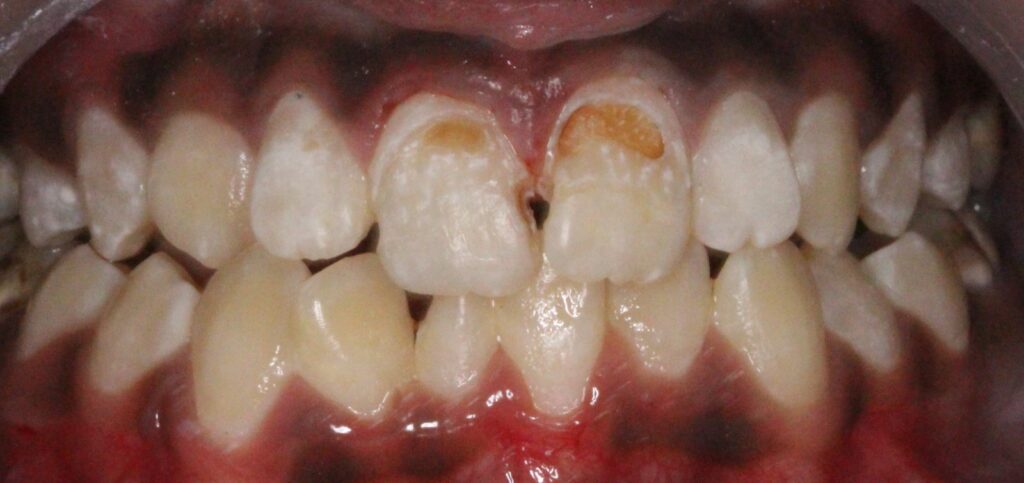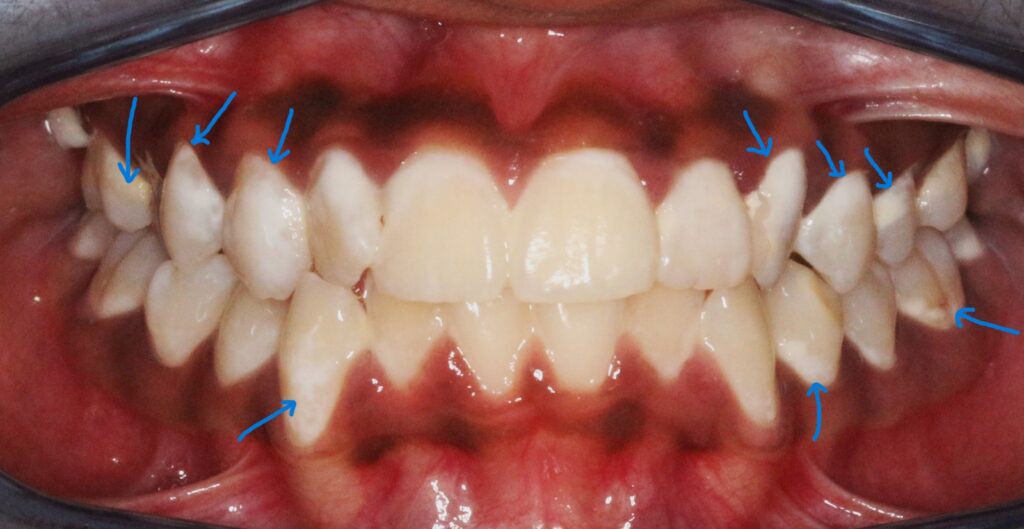Asthma is perhaps one of the more common respiratory issues , both in children and in adults. It is a condition that can lead to breathing difficulties of varying degrees. Asthma is usually managed relatively easily through the use of inhalers, but it can, in serious cases, require professional medical intervention.
There are also potential consequences for oral health in those who suffer from this problem
How can it impact our oral health?
One common way in which our teeth and gums can be affected by this condition is that many asthma sufferers tend to breathe through their mouth rather than the nose in order to make it easier to breathe. This tends to dry out the mouth.
Salive is needed to wash away harmful plaque and germs. Without a regular flow of saliva, you can develop cavities, gum disease, and halitosis. Moreover, the irritants from an inhaler can lead to mouth ulcers and thrush.
Some of the inhalers used to manage this condition can also create dental issues. The steroid inhalers, for example, can cause erosion of the tooth enamel due to the acid content of the medication that is contained in the spray. This can lead to mottling of the teeth, especially in children.
High dosage and long duration of inhalation therapy has been closely linked with several adverse effects on the oral tissues. As reduced salivary rate is accompanied by a concomitant increase in lactobacilli and Streptococcus mutans in the oral cavity, it may be one of the major contributing factors in the increase caries rate.
Protecting Your Gums and Teeth
If you use an inhaler for asthma or COPD, make sure you rinse out your mouth with water after each use. It also helps to brush your teeth. Make sure you drink water throughout the day to lessen any effects of dry mouth. You may also want to ask your medical provider about switching out your inhaler to one that will not place your teeth at risk.
What Can be done by the patient and family?
Use of small and frequent meals increase salivary flow. Sugar-free chewing gums, containing casein phosphopeptide-amorphous calcium phosphate (CPP-ACP), xylitol, or chlorhexidine, will increase the salivary flow rate CPP-ACP(available as Tooth mousse) is preferred due to its remineralizing action. Xylitol is a naturally occurring sweetener that cannot be fermented by cariogenic bacteria. Prolonged use of xylitol (Orbit and Happy dent) reduces bacterial counts in the plaque and saliva.
Points to remember for those who are using inhaled sprays for Asthma, Allergies and Chronic obstructive Pulmonary Disorders.
1) Ask your doctor for inhalers with spacer device so that the bulk of the drug does not get deposited in the oral cavity.
2) Visit a dentist to understand about special precautions in terms of oral hygiene practices that include brushing and flossing.
3) Ask your dentist for Sodium fluoride mouthrinses that counteract the acidic nature of the dry powder inhalers or anti-microbial mouthrinses such as chlorhexidine. They may prescribe salivary substitutes if the dry mouth is severe
4) Immediate brushing of the teeth after using inhalers should be avoided as it may damage the already weakened enamel due to acidic pH.
5) Restrict sugary foods and drinks between meals, avoid refined carbohydrates and increase the consumption of fruits, vegetables, and fibrous food.
6) Your dentist should be able to advice you on pit and fissure sealants, fluoride varnishes and gels that would potentially help to reduce oral health problems.
7) Do not continue inhaled medication on your own without regular follow up as it can parallelly cause harm.
8) Please understand that sometimes, medication alone may not solve the root cause of the problem and ENT surgery along with dental treatment may be a medical necessity.
9) Some children may need to have their upper jaw expanded as well, so that there is reduced airflow resistance.


